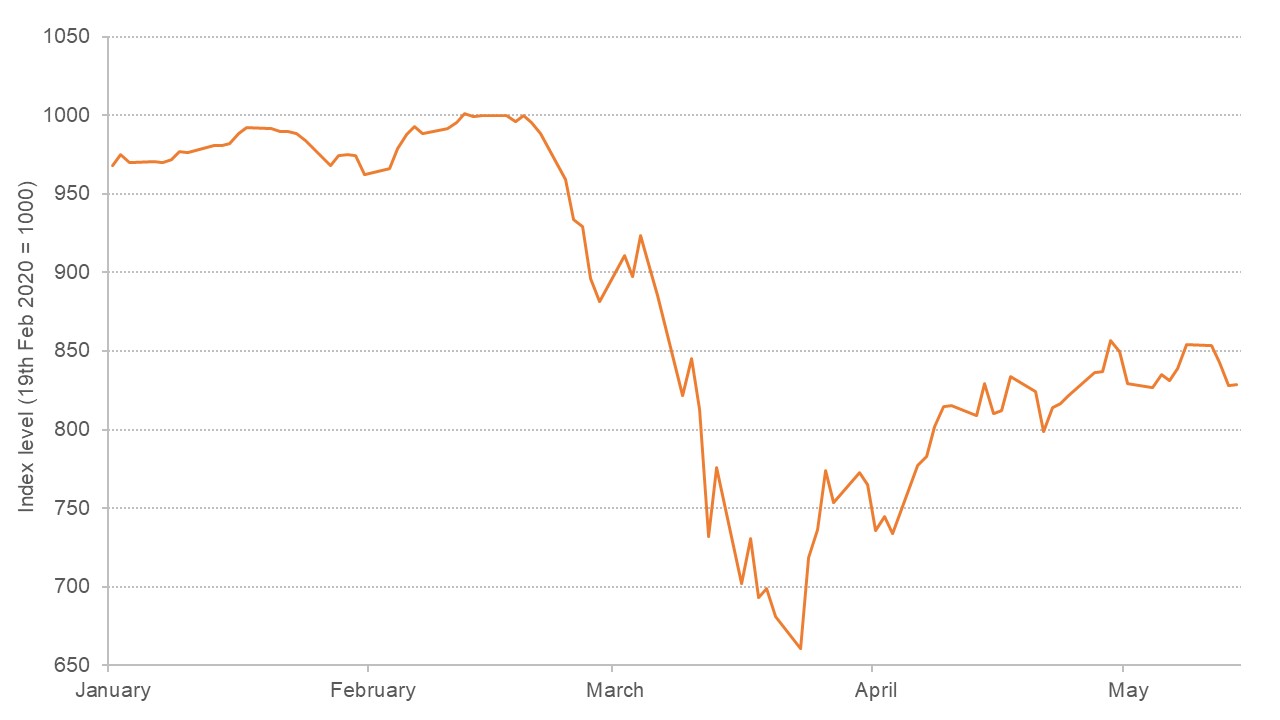
Interest Rates in the UK: A Potential Shift on the Horizon
As the summer approaches, the Bank of England is poised to make critical decisions regarding interest rates, currently set at 5.25%. The expectations in the financial capital are growing, with an optimistic tone emerging from Governor Andrew Bailey, who stated that the Bank “needs to see more evidence” of slowing price rises before any cuts are finalized. This cautious optimism could pave the way for a potential interest rate cut as early as June, although Bailey cautioned against premature assumptions, asserting that a decrease is “not a fait accompli.”
An overview of the UK’s economic landscape.
Bailey expressed confidence that inflation, which currently stands at 3.2%, may soon fall closer to the Bank’s target level. However, it remains contingent upon continuing positive trends. The possibility of cuts appears to be gaining traction among the nine members of the Monetary Policy Committee, where two members have already indicated their support for rate reduction.
The implications of rising interest rates over the past years cannot be understated. These rates are currently the highest they have been in 16 years, significantly affecting households across the country. As borrowing becomes more expensive, many homeowners are increasingly vulnerable, particularly those facing resets on their mortgages. Mortgage borrowers, particularly those whose fixed-rate terms are set to expire, are steeling themselves for potentially steep increases in monthly payments.
Balancing Act: Savings vs. Borrowing Costs
Chancellor Jeremy Hunt echoed the sentiment of waiting for firm confirmation of declining inflation rates before implementing any rate cuts. He noted that rushing a decision could mean needing to reverse it later, a situation that could strain the economy further. In contrast, shadow chancellor Darren Jones highlighted the real concerns for families facing higher rental and mortgage costs, noting, “It’s bad news for people at home having to reset their mortgages.”
The fragile state of the UK economy remains under scrutiny, especially with an election looming later this year where economic policies are expected to take center stage. Bailey commented on the potential corner turned, yet tempered his optimism by stressing that the recovery is not robust enough to celebrate just yet.
Real Impacts: Borrowers Feel the Crunch
The human cost of these economic decisions is starkly illustrated by stories like that of Paul Day, a 62-year-old retiree from Felixstowe. As his five-year fixed mortgage deal comes to an end, he anticipates an increase of around £225 a month as he moves to a lender-funded standard variable rate of 7.99%. Paul reflects on his situation, stating, “It’s been a scary three months waiting for interest rates to go down…” His choice to opt for a variable rate reflects a complex decision where he hopes for stabilization without being locked into another fixed term.
 Market reactions to interest rate discussions.
Market reactions to interest rate discussions.
The consensus among financial analysts predicts that rates might drop to around 5% by August, followed by further cuts in the forthcoming months. Since the initiation of rate hikes in December 2021, the Bank has aimed to combat inflation that surged to over 11% in late 2022, following global pressures from the COVID-19 pandemic and geopolitical conflicts.
Economic Recovery: Signs of Improvement?
Despite inflationary pressures, there are signs that the UK’s economy may be stabilizing. Recent forecasts from the Bank suggest a modest growth of 0.4% from January to March, with indications that the economy might have already exited recession. Increased population and supportive measures from the government’s spring budget could contribute to this hopeful outlook.
Yet, a cautious approach remains necessary. The Bank’s strategy of controlling borrowing costs aims to diminish consumer spending, thus curbing demand and ultimately tempering inflation. However, this balancing act is intricate. Excessively high rates risk stifling economic growth as businesses become reticent to invest in expansion.
Conclusion: Waiting for the Right Moment
While the Bank of England reassesses its policy stance amid slowly improving economic conditions, borrowers across the UK are left grappling with the implications of soaring interest rates. Though Bailey’s recent comments have infused a sense of optimism, it’s crucial for policymakers to exercise patience as they navigate these volatile waters and work towards restoring stability in a precarious economic landscape.
In this context, it’s imperative for those facing financial strain to seek help. There are numerous resources available, such as Citizens Advice and the MoneyHelper website, offering guidance on financial management and debt relief options.
 Resources for financial guidance.
Resources for financial guidance.















